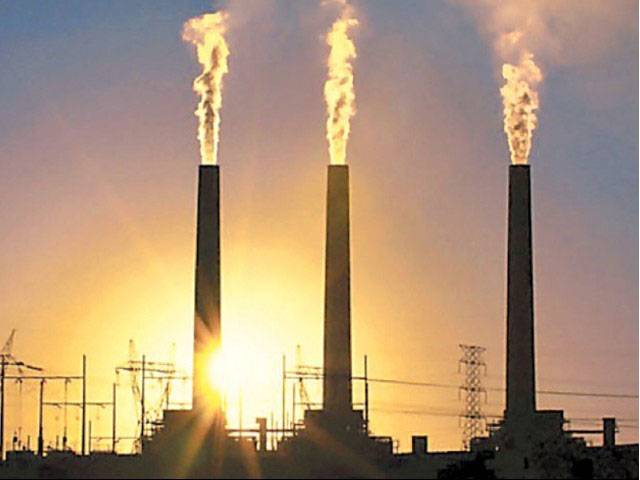KARACHI - Pakistan’s energy fuel mix is not sustainable so measures such as setting up hydel and coal plants and to replace oil with coal to bring down overall cost of power generation are required.
This was stated by Shamsul Islam, Company Secretary of Hub Power Limited while brief the journalists at Hub Power Plant on Wednesday. He said in 2005 gas fired plants contributed around 52 percent of electricity but the continuous decline in reservoirs power generation through gas come down to 29pc which brings electricity costlier.
Shams explained that expensive energy mix, circular debt and inefficiency of distribution companies are the major reasons of current energy crisis in the country.
He highlighted that most of the countries in the world producing approximately 41pc of electricity through coal, whereas Pakistan is producing just 1pc. “We are producing around 36pc from oil, 29pc each from gas and hydel and 5pc from nuclear to meet requirements” further he added.
Pakistan is fulfilling its energy needs through expensive oil and gas based power plants. The current energy fuel mix is not sustainable and we need to use cheaper fuels for power generation to bring down the overall cost of electricity in the country.
Shams said that Pakistan is currently facing a severe energy crisis of around 7,000MW. The primary cause of this remains heavy reliance on expensive furnace oil based power generation. Pakistan needs to convert RFO based steam power plants to coal for significant (up to 50pc) reduction in power generation cost as well as tariff for masses. Growth in population, increased urbanisation and the increased use of luxury appliances have taken the domestic usage to a staggering 46pc of the total electricity consumption. Industry installed generation capacity has increased at Compound Annual Growth Rate of 4.4pc over the last four years. Actual generation in 2010/11 remained 35pc from furnace oil, 35pc from hydel, 25pc from gas, 3pc from nuclear and 2pc from other sources, he added.
The continued increase in electricity demand has resulted in an average gap of over 3,500MW in FY11 that jumped to 5,000MW in FY12.
Currently it goes as high as 7,000MW depending on the weather and availability of hydel power.
He said that though the circular debt amounting to Rs 480 billion was paid at the end of June 2013, however, due to various reasons the figure has now ballooned to almost Rs 180 billion. Talking about the major reasons of rising circular debt he termed governance at the Federal and Provincial Government level, delays in tariff determination and notifications, fuel price adjustments, poor revenue collection, insufficient payment of tariff differential subsidy by the Ministry of Finance and transmission and distribution losses the biggest challenges.
He said that Hub Power was Pakistan’s first IPP of 1,292MW situated in Hub, Balochistan. It was the first IPP to go for expansion and in 2011 it established a 225MW plant in Narowal. Hubco has also set up Pakistan’s first hydel IPP of 84MW Laraib Energy in AJK which came online in 2013. Hub Power’s total power production at 1601MW making it Pakistan’s biggest IPP. He informed that Hub Power is generating around 10pc of Pakistan’s electricity with reliability and sustainability in a scenario where country is facing a power shortfall of 7,000MW.
Talking about various growth initiatives he explained that the company can consider setting up 2400MW additional coal plant at Hub Power, 2400MW LNG-based Combined Cycle plant, 500MW Hydel IPPs, 1200MW mine mouth IPP at Thar, 1000MW solar and/ or wind IPPs are amongst the growth options.
Friday, April 19, 2024
Hydel, coal plants can down power generation cost

Parvez Elahi’s indictment delayed again in two cases
April 19, 2024
SC suspends ECP’s re-polling order in PP-51
April 19, 2024
Court approves plea bargain of Parvez Elahi’s co-accused
April 19, 2024
Zardari creates another parliamentary record
April 19, 2024
KP politicians, civil society laud President’s address
April 19, 2024
A Tense Neighbourhood
April 19, 2024
Dubai Underwater
April 19, 2024
X Debate Continues
April 19, 2024
Hepatitis Challenge
April 18, 2024
IMF Predictions
April 18, 2024
Kite tragedy
April 19, 2024
Discipline dilemma
April 19, 2024
Urgent plea
April 19, 2024
Justice denied
April 18, 2024
AI dilemmas unveiled
April 18, 2024
ePaper - Nawaiwaqt
Advertisement
Nawaiwaqt Group | Copyright © 2024





